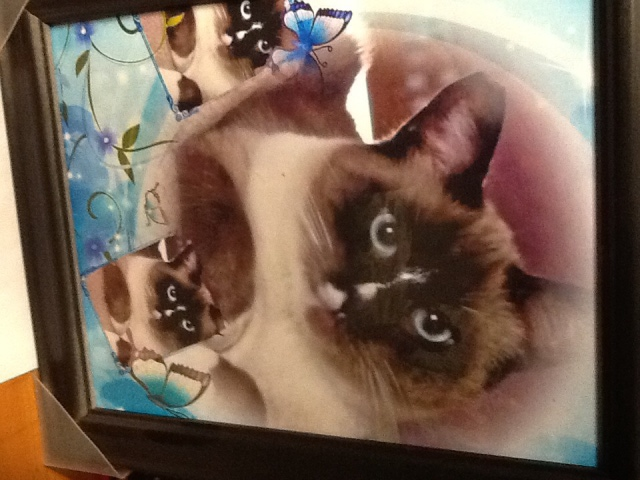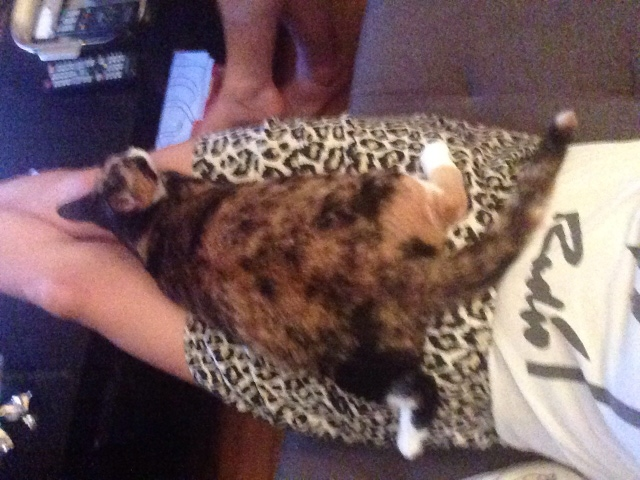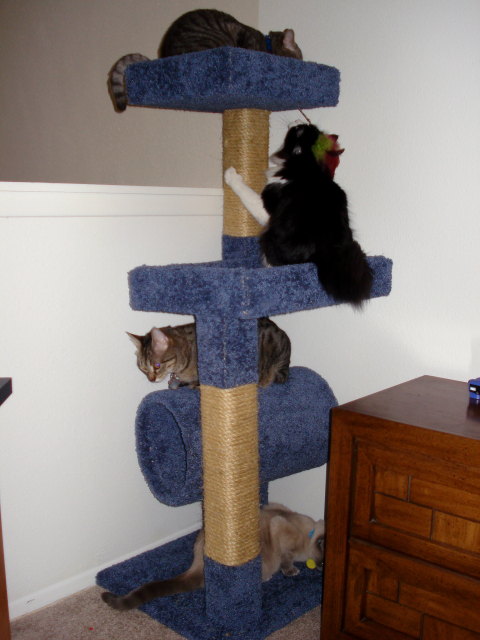QuestionMy 8 eight year old Siamese male is acting lethargic and is moving carefully when he walks down stairs and jumps off a chair or couch - actually he isn't jumping, he braces his front legs and brings his back legs down very carefully. It's been going on for about a week or so. No blood in his stool or urine that we can see. He lets me look at his back legs, no cuts or breakages that I can see or feel and he doesn't appear to be in pain - he isn't struggling to get away when I examine him, he is purring. His appetite is good - still wants his cat treat in the evening. I have a vet appointment for Sunday - the soonest I can get him into our regular vet.
We have a lot of stairs in our house - he seems to want to be on his own in a spare room or sitting on a bench looking outside in my office.
Any suggestions on what this could be?
Thanks.
AnswerHi Linda. Any time I see a little bit of lameness, I suspect a fever. Seems to be the most common cause. Body aches can come with any kind of infection, some of which cause no other symptoms. One virus, called calici, is especially known for causing limping due to joint and muscle pain. It's a whopper of a virus, and careful attention to make sure a fever doesn't spike to a dangerous level is needed. Also, preventing dehydration and ensuring the cat eats are imperative.
Cats can get arthritis, too. Eight years is younger than I've ever seen this kind of arthritis set in, but you never know. He is now considered a senior, and he may need a supplement to keep his joints healthy. If arthritis is suspected, your vet will probably give him a pain reliever and suggest giving him glucosamine and chondroitin (there is one for cats flavored to sprinkle over food called Cosequin, available through vets or pet stores).
Although the task can be daunting, I would really suggest taking his temperature if you can. Insert a thermometer rectally at least 1". His temp should be 100-102.5 degrees F. If he's got a fever of 104 or higher or he stops eating, I would recommend calling around to see if there's someone who could get him in sooner. A high fever can lead to convulsions, and not eating or drinking can lead to dehydration and may indicate something urgent is going on.

 Ferel cat biting
QuestionQUESTION: I took in a ferel cat hes been here a
Ferel cat biting
QuestionQUESTION: I took in a ferel cat hes been here a
 Cat eating too much?
Question
Chickpea
Hello,
Ive attached a photo of
Cat eating too much?
Question
Chickpea
Hello,
Ive attached a photo of
 Worried that my cat has a UTI??
Question
Oscar
Hello,
My name is Danielle and I have t
Worried that my cat has a UTI??
Question
Oscar
Hello,
My name is Danielle and I have t
 blackened area under lower jaw
Question
Daisy
My Daisy is a 12 year old short-h
blackened area under lower jaw
Question
Daisy
My Daisy is a 12 year old short-h
 Cat and Dog Introductions
QuestionHi!
I recently acquired a tortie; although I wa
Cat and Dog Introductions
QuestionHi!
I recently acquired a tortie; although I wa